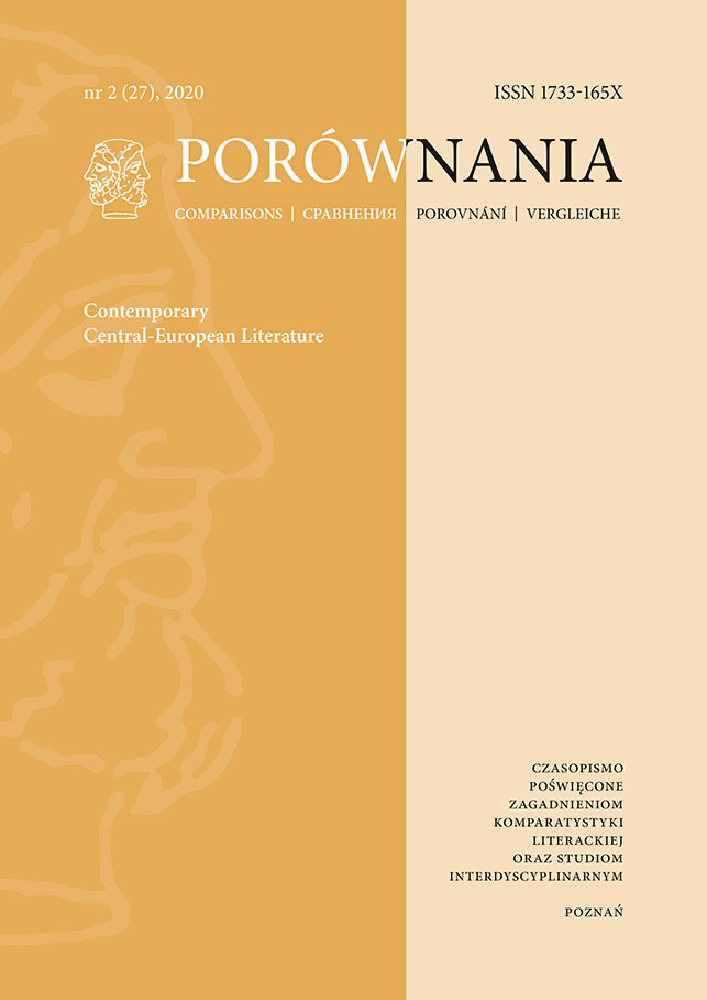Аннотация
This study examines the changes within Czech literary culture since 2000 in relation to the process of remediation. The starting methodological point is in examining a structure of a literary system within a model proposed by Siegfried J. Schmidt. The impact of new creative approaches which utilise interactive network media and also of available publishing platforms are observed in terms of the increase in the size of the literary active group of the population. The study further investigates publishing options via the Internet used mainly by amateur authors, complementary phenomena in print production, as well as the impact of these innovative forms on the dynamics of the book market. The ways in which texts are received are examined particularly from the point of enhancing the role of the reader within interactive media and attention is paid to the qualitative changes within the reception frameworks (transnational and non-literary contexts). And finally, the ways in which literary phenomena are handled is largely related to the reflection of the critical state of the current literary criticism and new virtual formats of critiquing literature. The study shows that the evolutionary changes which were brought about by extending the use of digital media within literary communication have been so extensive that the Schmidt model of analysis has proven insufficient.
Библиографические ссылки
Bílek, Patr. A. “Udělej si sám. O sebeukájení dnešních literárních kritiků” (Do it yourself: on self-gratification of current literary critics) A2 5 (2008): 7.
Císař, Jaroslav. “Základní fakta o knižní produkci ČR v roce 2001.” (Key facts on the book production in the Czech republic in 2001), 2019, http://www.sckn.cz/index.php?p=fakta2001. Accessed 10 April 2019.
Cramer, Florian. “What is ‘Post-digital’?” APRJA 3.1 (2014), http://www.aprja.net/?p=1318. Accessed 10 April 2019.
Hodrová Daniela, Stránský Jiří, Vajchr Marek, Neff Ondřej, Štampach, Odilo Ivan, Dvořák Joachim, Pavelka Zdenko. “Dvě otázky.” (Two questions). Literární noviny 12.39 (2001): 10.
Ferguson, Donna “Poetry Sales Soar as Political Millennials Search for Clarity,” https://tinyurl.com/y8ongd39. Accessed 21 Jan. 2019.
Harák, Ivo. “Fikční světy kritiky aneb …” (Fictional world of criticism …). Dokořán 13.51 (2009): 40–46.
Košinská, Eva. Čtenáři v internetových komunitách (zaměřených na literaturu). (Readers in Internet communities (focused on literature)), diplomová práce (MA Thesis). Praha: Univerzita Karlova v Praze, Filozofická fakulta, 2009.
Král, Jiří T. “Kopání do mrtvoly.” (Kicking a corpse). A2 13 (2008): 8.
Kratochvil, Jiří. “Česká literatura a politik.” (Czech literature and politics). Tvar, 4: 27/28 (1993): 1.
Křivánek, Vladimír. “Hradecké sympozium o kritice.” (Hradec symposium on criticism). Dokořán 13.51 (2009): 38–40.
Král, Petr. “Mluvíme o tomtéž?” (Are we talking about the same thing?). Tvar 19.10 (2009): 6–7.
Materna, Jiří. Poezie umělého světa. (Poetry of an artificial world). Brno: Backstage Books, 2016.
Povídky Ze Zdi (Společné Tvůrčí Psaní) (Short Stories from the Wall (Community Creative Writing), https://tinyurl.com/yahy4wgg. Accessed 10 April 2019.
Příběhy Na Padesát Slov. (Stories of Fifty Words), http://pribehynapadesatslov.cz. Accessed 10 April 2019.
Renčina Červená Knihovna. (Renata’s Chick Flicks), http://www.cervenaknihovna.com/. Accessed 10 April 2019.
Růžička, Jiří G. “Anarchie v nakladatelském průmyslu.” (Anarchy in the Publishing Industry). A2 26 (2008), https://tinyurl.com/y8d8oxoj. Accessed 10 April 2019.
Schmidt, Siegfried J. Přesahování literatury (Crossovers of Literature). Trans. Zuzana Adamová. Praha: ÚČL AV ČR, 2008.
Slovensko Píše Román. (Slovakia is Writing a Novel), http://slovenskopiseroman.sk. Accessed 10 April 2019.
Šrank, Jaroslav. Aktéři a tendencie literárnej kultúry na Slovensku po roku 1989. (The Actors and Trends in Slovakian Literary Culture after 1989). Bratislava: Univerzita Komenského, 2019.
Švec, Štefan P. B. “Krize české literatury. Pár povrchních marketingových keců“ (Czech Literature in Crisis: A Bit of Superficial Marketing Rubbish). A2 4.13 (2008): 1, 16–17.
Trávníček, Jiří. “Nakladatelé a knihkupci jsou velmi žárliví na poskytování informací. Rozhovor s Vladimírem Pistoriem o tom, jak funguje knižní trh.” (Publishers and Booksellers are Jealous about Giving out Information, Interview with Vladimír Pistorius about How the Book Market Operates). Host 7 (2008): 41–46.
Trávníček, Jiří. Čtenáři a internauti. Obyvatelé České republiky a jejich vztah ke čtení. (Readers and Internauts: Czech Population and their Attitudes to Reading). Brno: Host, 2011.
Viewegh, Michal. Blogový román (Blog Novel), http://blogovyroman.idnes.cz.Accessed 10 April 2019.
Лицензия
Utwory opublikowane w czasopiśmie „Porównania”, na platformie Pressto należącej do Uniwersytetu im. Adama Mickiewicza w Poznaniu są udostępniane na licencji Creative Commons Uznanie autorstwa - Bez utworów zależnych 4.0 Międzynarodowe (CC BY-ND 4.0)
Tym samym wszyscy zainteresowani są uprawnieni do korzystania z utworów opublikowanych pod następującymi warunkami:
-
uznania autorstwa — czyli obowiązek podania wraz z rozpowszechnianym utworem informacji o autorstwie, tytule, źródle (odnośniki do oryginalnego utworu, doi) oraz samej licencji
-
bez utworów zależnych — remiksując, przetwarzając lub tworząc na podstawie utworu, nie wolno rozpowszechniać zmodyfikowanych treści.
-
brak dodatkowych ograniczeń — nie można korzystać ze środków prawnych lub technologicznych, które ograniczają innych w korzystaniu z utworu na warunkach określonych w licencji.
Uniwersytet im. Adama Mickiewicza w Poznaniu zachowuje prawo do czasopisma jako całości (układ, forma graficzna, tytuł, projekt okładki, logo itp.).
Autor zachowuje prawa majątkowe, ale udziela zgody Uniwersytetowi im. Adama Mickiewicza w Poznaniu na wykorzystanie dzieła. Autorzy tekstów zakwalifikowanych do publikacji proszeni są o wypełnienie podpisanie i przesłanie umowa (PL) agreement (EN)
Agreement for granting a royalty-free license to works with a commitment to grant a CC sub-license




